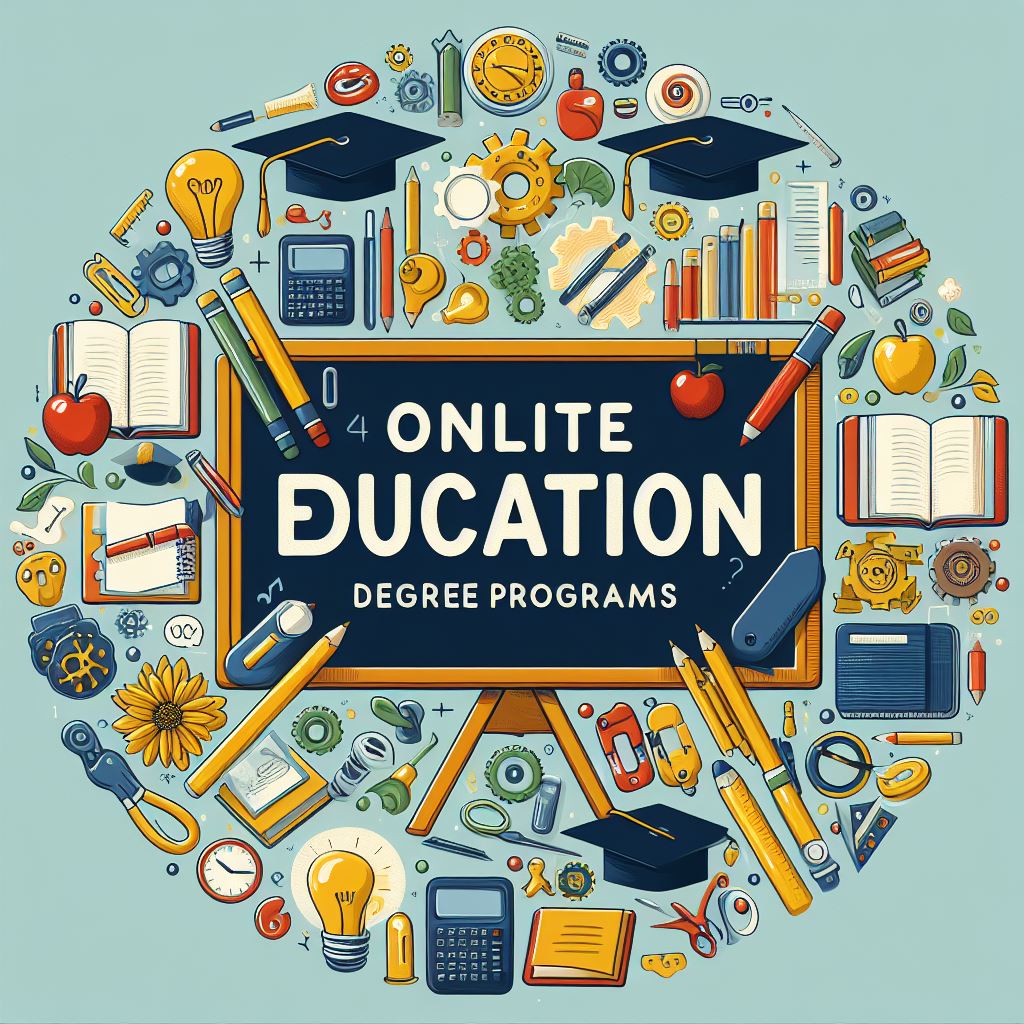Introduction:
In today’s fast-paced world, education has evolved beyond traditional classroom settings, with online education degree programs offering flexibility, accessibility, and innovation. As technology continues to transform the way we learn, online education has emerged as a viable and popular option for individuals seeking to advance their careers, acquire new skills, or pursue higher education. In this comprehensive guide, we’ll explore the dynamic landscape of online education degree programs, uncovering their benefits, challenges, and the transformative impact they have on students worldwide.
The Evolution of Online Education:
Online education has come a long way since its inception, evolving from rudimentary correspondence courses to sophisticated digital learning platforms. The early days of online education were marked by simple text-based courses delivered via email or web forums. However, advancements in technology, such as high-speed internet, multimedia content, and interactive learning tools, have revolutionized the online learning experience.
Today, online education degree programs encompass a wide range of disciplines and levels, from certificates and diplomas to undergraduate and graduate degrees. Institutions around the world offer online programs in fields such as business, education, healthcare, technology, and the arts, catering to diverse learners with varying needs and aspirations.
Benefits of Online Education Degree Programs:
Online education degree programs offer numerous benefits for students, making learning more accessible, convenient, and flexible:
- Flexibility: One of the most significant advantages of online education is flexibility. Students can access course materials, lectures, and assignments at their own pace and schedule, allowing them to balance their studies with work, family, or other commitments.
- Accessibility: Online education breaks down geographical barriers, allowing students from anywhere in the world to access quality education without the need to relocate. This accessibility is especially beneficial for individuals living in remote or underserved areas with limited access to traditional educational institutions.
- Convenience: With online education, there’s no need to commute to campus or adhere to rigid class schedules. Students can study from the comfort of their own homes, saving time and money on transportation and accommodation expenses.
- Personalized Learning: Online education degree programs often incorporate adaptive learning technologies and personalized learning paths, allowing students to tailor their learning experience to their individual needs, interests, and learning styles.
- Career Advancement: Online education provides opportunities for career advancement and professional development, enabling working professionals to acquire new skills, earn certifications, or pursue advanced degrees without interrupting their careers.
Challenges and Considerations:
While online education degree programs offer many benefits, they also present unique challenges and considerations:
- Self-discipline: Online learning requires a high degree of self-discipline and time management skills. Without the structure of traditional classroom settings, students must stay motivated and accountable for their learning progress.
- Technology Requirements: Access to reliable internet connection and appropriate technology, such as computers, tablets, or smartphones, is essential for online learning. Students must ensure they have the necessary technology and technical skills to participate effectively in online courses.
- Limited Social Interaction: Online education can lack the face-to-face interaction and networking opportunities available in traditional classroom settings. Students may miss out on peer collaboration, group discussions, and in-person interactions with professors.
- Accreditation and Quality Assurance: When choosing an online education program, it’s essential to consider accreditation and quality assurance. Accredited programs adhere to rigorous standards of academic excellence and are recognized and respected by employers and academic institutions.
- Time Commitment: While online education offers flexibility, it still requires a significant time commitment. Students must dedicate time to studying, completing assignments, and participating in online discussions, just like in traditional classroom settings.
Impact and Future Trends:
The rise of online education degree programs has had a transformative impact on the educational landscape, driving innovation, accessibility, and democratization of learning. As technology continues to advance, several trends are shaping the future of online education:
- Artificial Intelligence (AI) and Machine Learning: AI-powered tools and algorithms are revolutionizing online education, enabling personalized learning experiences, adaptive assessments, and intelligent tutoring systems.
- Virtual and Augmented Reality (VR/AR): VR and AR technologies are creating immersive learning environments, allowing students to explore virtual classrooms, laboratories, and simulations from anywhere in the world.
- Microcredentials and Digital Badges: Microcredentials and digital badges are gaining popularity as alternative credentials that provide recognition for specific skills and competencies earned through online courses and programs.
- Gamification and Interactive Learning: Gamification techniques and interactive learning strategies are enhancing student engagement and motivation, making learning more enjoyable and effective.
- Lifelong Learning and Continuing Education: The demand for lifelong learning and continuing education is driving the growth of online education platforms and programs catering to adult learners and working professionals seeking to update their skills and stay competitive in the workforce.
Conclusion:
Online education degree programs have revolutionized the way we learn, offering flexibility, accessibility, and innovation for students worldwide. With the benefits of flexibility, accessibility, and personalized learning, online education is transforming education and empowering individuals to pursue their academic and career goals. While online learning presents unique challenges and considerations, its transformative impact on the educational landscape is undeniable. As technology continues to advance and online education evolves, the future holds exciting opportunities for learners to access quality education anytime, anywhere, and on any device.



